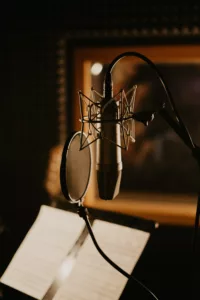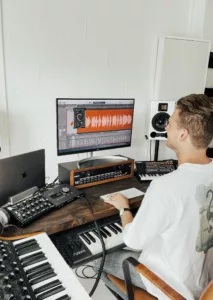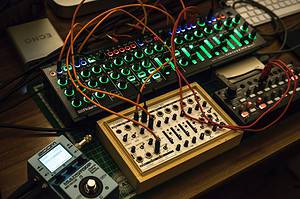Giving Musicians the Tools to Make Better Music
The Battle of Tone: Analog vs. Digital Guitar Pedals
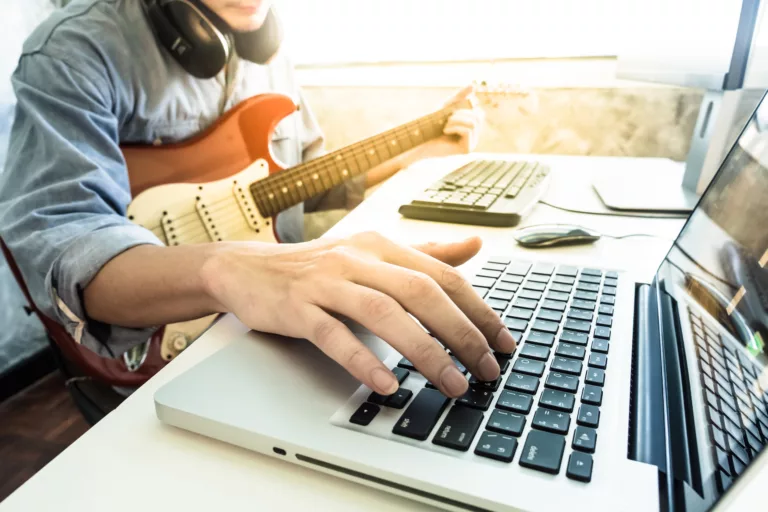
Let’s Break the Ice, Shall We?
Hey, folks! Mattie here. Welcome back to the temple of sound where we get down to the nitty-gritty of all things music. Today, we’ve got an epic showdown that’s been brewing for decades: Analog vs. Digital Pedals. Think of it as the Floyd Mayweather and Manny Pacquiao of the music world. And no, we’re not selling pay-per-view tickets; your seat is already reserved!
In one corner, we’ve got Analog Pedals—drenched in vintage vibes and heralded by purists. In the other, Digital Pedals—the Swiss Army knives of the modern musician’s toolkit. But let’s get one thing straight; this ain’t your grandpa’s old radio. Both types have their devoted followings, quirks, and killer punches. So grab your gloves and mouthpiece because we’re about to throw down!
But why should you care? Why does it matter whether your sound travels through a series of capacitors and resistors or gets converted into zeroes and ones? Simple. Because understanding this debate means creating a sound that’s authentically you. You don’t get to be the next Jimi Hendrix by fumbling around with gear you don’t understand.
For those of you who are new to this epic saga, let me assure you, it’s not just about which pedal is better. It’s about which pedal is better for you. Intrigued? Keep scrolling!
By the way, if you’re a newcomer to this vintage vs. modern rivalry, be sure to check out Analog vs. Digital: Audio Explained. It’s the perfect intro to today’s smackdown.
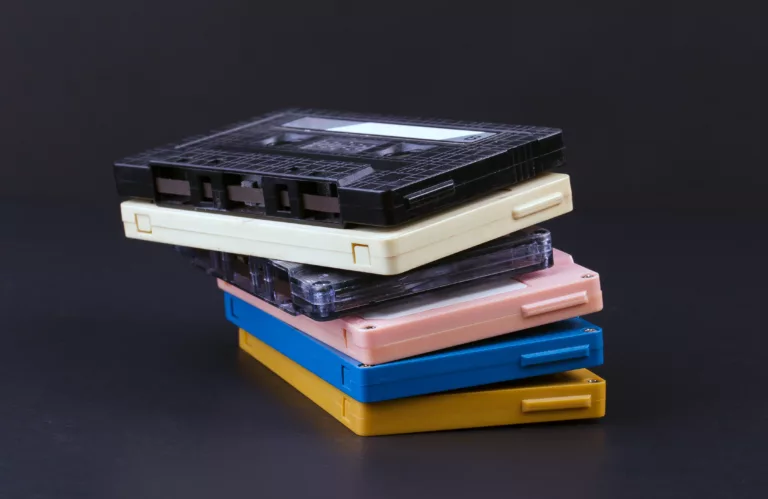
The Analog Pedals: The Hipsters of the Pedal Universe
Ah, Analog Pedals. The kale smoothies of the audio world. If there were a Woodstock for pedals, you bet your last Led Zeppelin vinyl these guys would be headlining. Why? Because analog pedals are the old souls of the sound universe, offering warmth, simplicity, and that elusive “je ne sais quoi” you can’t quite put your finger on but wouldn’t live without.
So, what exactly gives analog pedals this groupie-like following? It’s the tech, baby! They use good ol’ analog circuitry—capacitors, resistors, and transistors—to process your signal. There’s no digitization or sampling involved; it’s pure, unadulterated sonic alchemy.
Remember, these aren’t smart devices; they won’t suggest songs for you or teach you how to play the opening riff to “Stairway to Heaven.” They don’t need to. Their appeal is in their straightforward, what-you-see-is-what-you-get approach to crafting sound. Knob twisters and button pushers, you’ll feel right at home!
Why would you opt for a technology that hasn’t changed much since the ’60s? Because if it ain’t broke, don’t fix it. Or in this case, if it’s rockin’, keep knockin’. Analog pedals offer the kind of warmth and character that digital models are still trying to emulate. And that, my friends, is worth its weight in gold (records).
If you want to know more about why some musicians treat analog like a religion, check out Analog vs. Digital Recording: Which Captures Music Better?
So, are analog pedals your soulmate, or is this just a retro fling? We’ll find out soon enough. But first, let’s meet our other contender—Digital Pedals.
The Digital Frontier: Where Tech Meets Tunes
Move over, vintage. The new kid on the block has swagger, and it’s here to shake things up. Welcome to the world of Digital Pedals, the Elon Musk to Analog’s Henry Ford. While analog pedals are all about raw, unfiltered passion, digital pedals are the calculated geniuses of the pedal universe.
Picture this: It’s a Saturday night, and instead of being a one-trick pony with just fuzz or delay, your digital pedal offers an entire universe of effects at your feet. Reverb, chorus, flanger—it’s like a sonic buffet you never knew you needed. All this without needing a separate room just for your gear.
Here’s the Lowdown
Digital pedals take your analog signal and, with the help of an Analog-to-Digital Converter (ADC), turn it into digital data. This data is then processed by a microprocessor that emulates different effects. Finally, a Digital-to-Analog Converter (DAC) converts it back to an analog signal. It’s like going through a sonic teleporter.
Functionality Over Nostalgia
You may lose some of the “soul” (as analog purists would say), but what you gain is precision and versatility. And let’s not forget, preset storage. Ever wanted to switch from Gilmour’s silky solos to Van Halen’s ‘Eruption’ with a single foot tap? Digital pedals make it happen. These are the Swiss Army knives of the pedal universe; you never know you needed a bottle opener until you have one.
Digital pedals offer convenience and a wide array of sounds. If you’re the kind of musician who wants to sound like an entire band, then going digital is a no-brainer. Think of it as having your cake and adding as many layers as you want—with each layer being a different flavor.
Hungry for more about the world of 0s and 1s in music? Dive into the deep end with Analog vs. Digital Synthesizers: What’s the Real Difference?
Alright, now that we’ve made introductions, let’s get these two gladiators in the ring for a side-by-side smackdown. It’s time for the real comparison, baby!
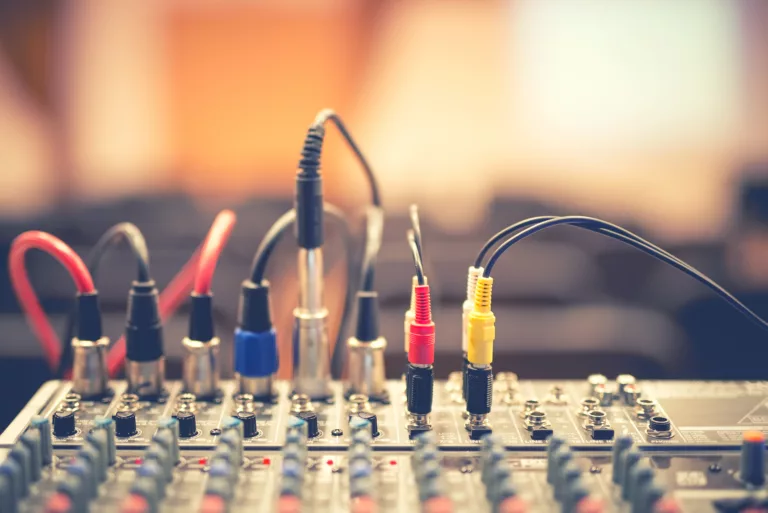
The Tale of the Tape: Key Differences Unveiled
Alright, gang, let’s get into the juicy stuff. It’s easy to say one is old and the other is new, one is simple and the other is complex. But if you want to be the life of the pedal party, you need to know what really sets these two apart. So let’s delve into the technicalities without making it feel like you’re reading a user manual. Because nobody, I mean nobody, actually reads those, right?
Signal Processing: The Eternal Struggle
In the red corner, representing Team Analog, we have continuous signal processing. What you play is what you get, just flavored by analog goodness. There’s no fussing about with conversions or algorithms.
In the blue corner, digital pedals rely on discrete signal processing. They take little snapshots of your signal, decorate them with effects, and line them back up. It’s like turning your sound into a flipbook animation.
Sound Quality: Let’s Talk Depth and Clarity
Analog is famous for its warm and complex tones. It’s like listening to Morgan Freeman read Shakespeare by a fireplace—smooth, rich, and full of character.
Digital, on the other hand, is crystal clear. It’s like reading a Kindle in broad daylight—no background noise, just the content you want. But sometimes, just sometimes, it could feel a tad sterile. It’s like a medical clean room where everything is 99.99% free of personality.
Customization: DIY or Download
Analog pedals give you knobs. You tweak them until your sound is ‘just so.’ It’s as hands-on as kneading dough for grandma’s secret bread recipe.
Digital pedals offer presets and software integration. It’s like having a Michelin-star chef in your kitchen, ready to cook up whatever you fancy. And if you don’t like his menu, you can always download some more.
The Price Tag: Nostalgia Ain’t Cheap
Analog gear tends to be pricier because, let’s face it, vintage has value. You pay a premium for that analog “mojo.”
Digital is generally more budget-friendly, but be careful: some high-end models can empty your wallet faster than a backstage bar at a rock concert.
For a more in-depth look at the ‘financials’ of the analog and digital world, check out Mixer Face-Off: Analog vs. Digital: Which Should You Choose?
So, that’s the breakdown, my friends. If you’re still riding the fence, don’t sweat it. Up next, we’ve got the ultimate side-by-side comparison, complete with pros and cons. Time to pick your fighter!
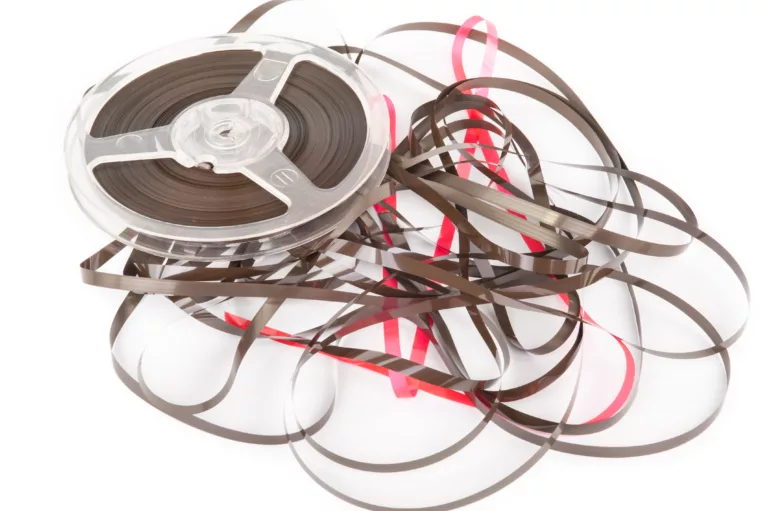
The Pros and Cons—A Side-By-Side Smackdown
Alright, you’ve met the contenders, gotten a taste of their backstory, and waded through some technical jargon like a champ. Now it’s time for the main event—the face-off you’ve all been waiting for. We’re talking pros and cons, baby! Let’s break it down in a manner even a fifth-grader could understand, shall we?
Analog: The Soulful Sound You Can’t Deny
| Pros | Cons |
|---|---|
| The Warmth: Analog is like a vintage wine; it just gets better with time. | Limited Options: One pedal, one effect. It’s like a one-trick pony. |
| Simplicity: No menus, no fuss. Just turn the knob and rock on! | No Presets: What you dial in is what you get. Forget to save it, and it’s like it never happened. |
| Character: Analog gives you a signature sound that’s authentically yours. | Pricey: Good analog pedals can cost an arm and a leg. Prepare to empty your wallet. |
| No Latency: The signal is as fast as your shredding, no delays. | Space Hog: You’ll need a separate board just to carry these around. |
Digital: The Multi-Tasker’s Dream
| Pros | Cons |
|---|---|
| Versatility: From distortion to delay, it’s a one-stop-shop for effects. | Complexity: Ever felt like you need a Ph.D. to operate your gear? Yep. |
| Preset Heaven: Save your settings and switch on the fly. It’s like having a setlist for your gear. | Cost of Quality: Sure, there are cheap options. But for good quality, you’ll still pay. |
| Space Saver: All those effects packed into one neat package. | Latency: Sometimes, those milliseconds matter. |
| Firmware Updates: Your pedal can actually get better over time. It’s like a wine that ages itself. | Sound: While clean and precise, some argue it lacks the ‘soul’ of analog. |
There you have it—the pros and cons in black and white, or in this case, warm analog hues and crisp digital clarity. Which side of the pedal divide are you on? Still can’t decide? Maybe you’re a hybrid kind of musician, wanting the best of both worlds. Don’t worry, I’ve got something special for you too!
If you’re still torn between Team Analog and Team Digital, you’ll find Signal Quality Compared: Analog vs. Digital to be a pretty enlightening read. It’s like couple’s therapy for your musical dilemma.
Stick around. In the next section, I’ll share some of my personal recommendations that cater to both the die-hard purists and the tech-savvy pioneers among you.
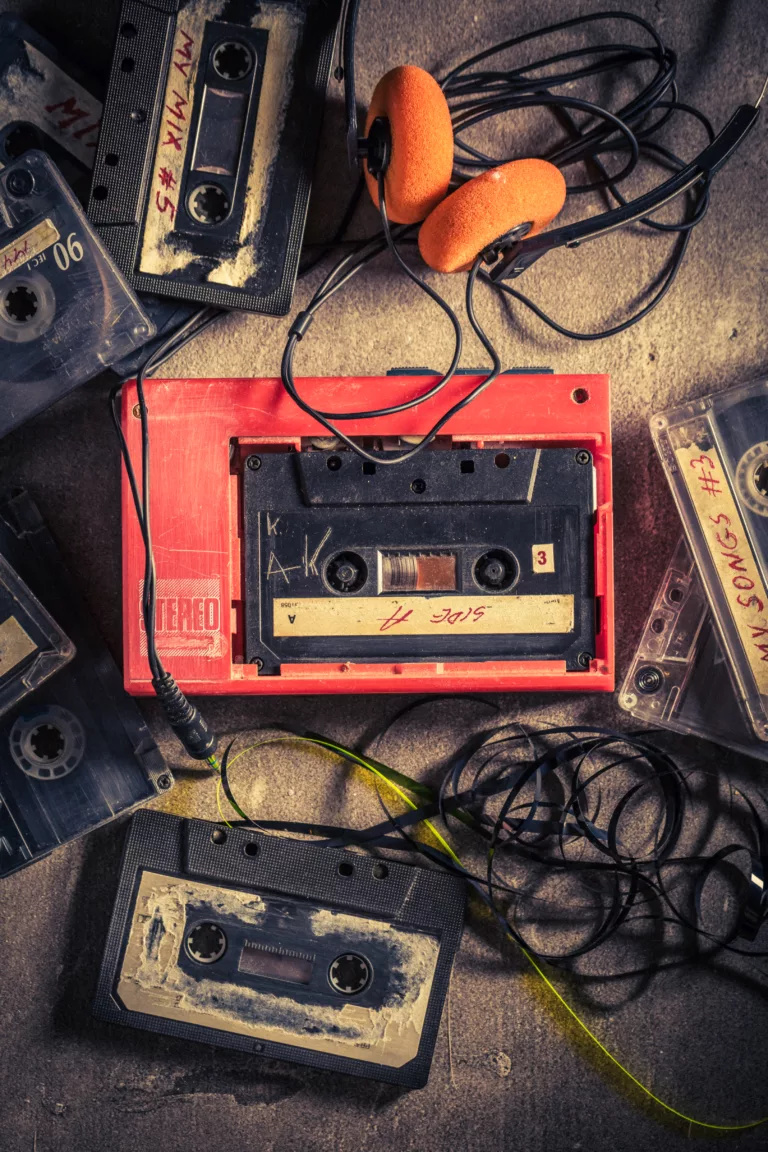
Use Cases: When to Use Which
Congratulations, dear reader! You’ve made it this far. You’ve waded through the pros, cons, technicalities, and a myriad of bad jokes. And now you’re wondering, “Mattie, for the love of all things musical, which damn pedal should I use?” Well, fear not, intrepid explorer of soundscapes. This is where we cut through the crap and give you the real-deal, no-nonsense advice on when to go analog and when to embrace the digital revolution.
For the Purists: When Nothing but Analog Will Do
Listen, some folks refuse to eat anything but organic. Others won’t watch a movie if it’s not on film. And then there are those who swear by vinyl records. If you’re the kind of musician who insists on using guitar picks made from naturally-fallen tree branches, then analog is your jam.
When You’re Recording That Vintage Soundtrack: Going for that ’60s vibe? Analog adds that authentic touch that digital just can’t quite mimic.
When You’re Gigging: Ah, the gritty sound of an analog pedal as you strum out chords in a dimly lit bar. Priceless.
When You’re Simply Analog-at-Heart: Sometimes it’s not about logic; it’s about love. And if you love analog, then who am I to argue?
For the full romantic ballad on analog gear, you should check out Amplifying Your Sound: Analog vs. Digital Amplifiers.
For the Explorers: When You Want to Sample a Buffet of Effects
You live for the new. For you, old school is just that—old. You want the latest gizmos, the newest tech, and the widest range of options. Basically, you want the buffet, not just the appetizer.
The Home Studio Maestro: When you’re laying down tracks at home and need a myriad of effects at your fingertips, digital is your Swiss Army knife.
The Genre-Jumper: Today it’s blues, tomorrow it’s techno, and the day after? Who knows! Digital’s got you covered.
When You Just Can’t Decide: When you’re as indecisive as a cat at a laser pointer disco, digital pedals offer a bit of everything.
For all you tech junkies out there, you can’t miss Pedal Power: Analog vs. Digital Effects Pedals Compared.
For the Hybrid: When You Want the Best of Both Worlds
Who says you can’t have your cake and eat it too? Maybe you love the warmth of analog but need the versatility of digital. You, my friend, are a hybrid.
When Recording: Use analog for the soul and digital for the effects. Get the warmth where you need it and the diversity where you crave it.
Live Performances: Use analog for your signature sounds and digital for those unique, off-the-wall effects that give your performance an edge.
When You’re Just Too Cool for Labels: Because who says you have to pick sides? Life’s too short for limitations.
For the fence-sitters among you, give this a read: Beating the Drum for Analog: Are Digital Drums up to the Mark?
There you have it—whether you’re a purist, an explorer, or a little bit of both, there’s a pedal for you. So go ahead, pick your flavor and start making some beautiful noise.
“Pick your flavor and start making beautiful noise!”
The Fan Base — Who Swears by What
Okay, hotshots, it’s time to name-drop. In this corner of the musical ring, fan endorsements are as valuable as Grammy awards. Heck, sometimes they’re even better. Because when you know who’s backing what, you get a sense of where you might fit in—or where you might stand out. Are you ready to see who’s teaming up with your gear? Let’s rock and roll.
Analog Aficionados: The Keepers of the Sonic Flame
Eric Clapton: Mr. “Slowhand” himself! Clapton’s rich, bluesy tones have analog written all over them. If you’re striving for that timeless, classic sound, look no further. When God wants to hear good guitar, he puts on an Eric Clapton record and so should you.
Jimi Hendrix (Posthumously): The man, the legend. His guitars wailed and cried in a language only analog could speak. His famous fuzz tone? Pure analog magic. If you’re aiming to set your sound—and possibly your guitar—on fire, then analog is the way to go.
Your Hipster Friend Who Only Buys Vinyl: We all know that guy. Wears thick-rimmed glasses, sips single-origin coffee, and yes, swears by analog pedals. But you know what? He might be onto something.
Wondering how analog keeps the charm alive? Dive deep into Analog vs Digital Recording: Which Captures Music Better?
Digital Defenders: The Futurists of the Music Realm
EDM Producers: These are the maestros who can make a dance floor shake with just a laptop and a dream. For them, digital isn’t just an option—it’s a lifestyle. If you’re looking to drop the bass and make the walls vibrate, digital’s got your back.
YouTubers: The age of the Internet musician is here. If you’re cranking out content at the speed of light and need an arsenal of tones for your weekly upload, digital pedals are your best buddies.
The Geek Who Loves to Code His Own Pedal Effects: Yeah, this guy. While some of us are picking between overdrive and distortion, this dude is writing algorithms for a pedal that mimics the sound of a T-Rex roaring in an echo chamber. The future is now, people.
If you’re one of these future-forward folks, you can’t afford to miss Analog vs Digital Oscilloscopes: Which Is Best for Your Lab?
So whether you’re a classic rock aficionado or an EDM junkie, knowing who’s in your corner can help you make the right choice—or inspire you to defy the norms. After all, innovation often starts where tradition ends.
Conclusion: The Final Countdown (or Not, We’re Not in a Hurry)
Ah, my musical magicians, you’ve made it to the finish line—or is it the chorus?—of this wild ride through the wondrous world of pedals. We’ve chuckled, we’ve pondered, and maybe, just maybe, we’ve learned a thing or two. Now, if you’re still on the fence about Team Analog vs. Team Digital, let me drop this timeless gem on you: “No matter which side you choose, remember: it’s not the tool but the artist that makes the magic happen.”
That’s right! Your guitar pedal is just a piece of the puzzle. Whether you opt for the soulful simplicity of analog or the cosmic capabilities of digital, what really matters is how you use it to express yourself. I mean, you could give Da Vinci a crayon and he’d still create a masterpiece. Similarly, Hendrix could make magic with a piece of string and a block of wood.
So what’s it gonna be? Are you a gritty, heart-on-your-sleeve analog enthusiast? Or are you a futuristic, sky’s-the-limit digital dynamo? Perhaps you’re a stylish hybrid, effortlessly marrying old and new. Whichever path you tread, may it be filled with the sweet melodies of your own choosing.
Join the Conversation!
What’s that? You want more? Well, you’re in luck! The party’s just getting started, and your voice—like your musical choice—is crucial to the mix. So let’s get chatty!
Are you Team Analog or Team Digital? Let us know in the comments below.
Feel like taking a deeper dive? Don’t forget to check out our extensive guide on Mixer Face-off: Analog vs Digital, Which Should You Choose? for even more juicy details. Because, trust me, this rabbit hole goes deep, and it’s lined with guitar picks and patch cables.
Until next time, rock on, you beautiful creatures! 🎸🎶
Thanks for reading! If you still need help, check out my Free Vocal Presets for Logic Pro X that will get your vocals sounding amazing in no time!!
Mattie
Check Out Our Other Articles!
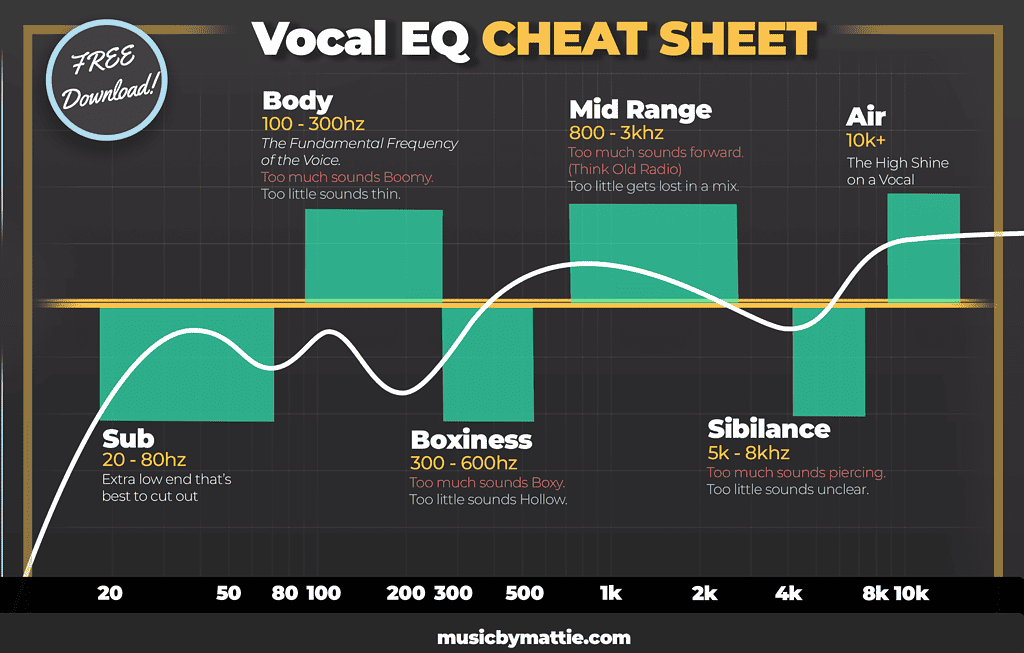
Download our FREE Vocal EQ Cheat Sheet!
Mattie
Post Info
Join "5 Beat Friday"
Every week you'll get 5 beats about the production world. Join the over 5,000+ other producers bettering themselves through 5 Beat Friday!

